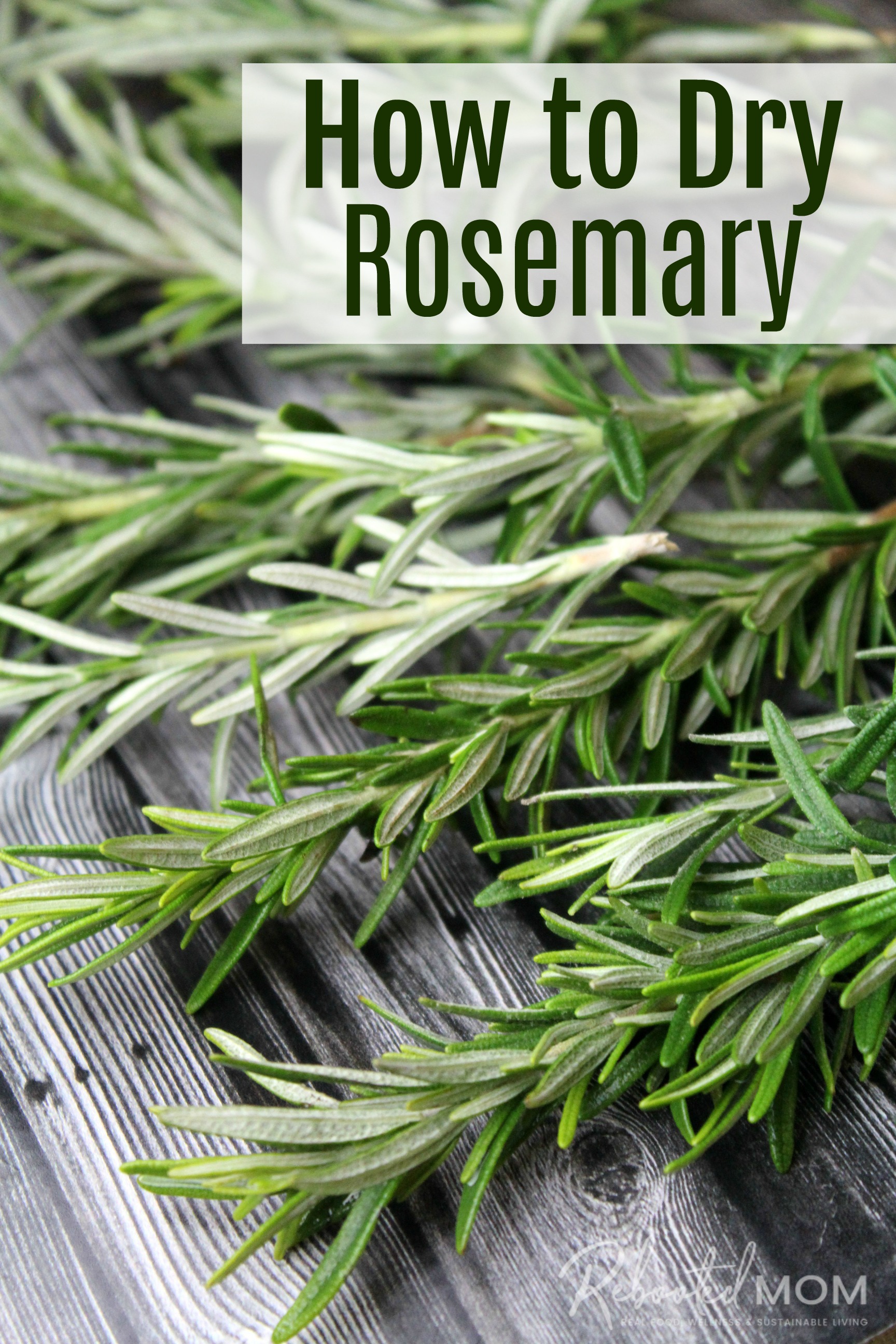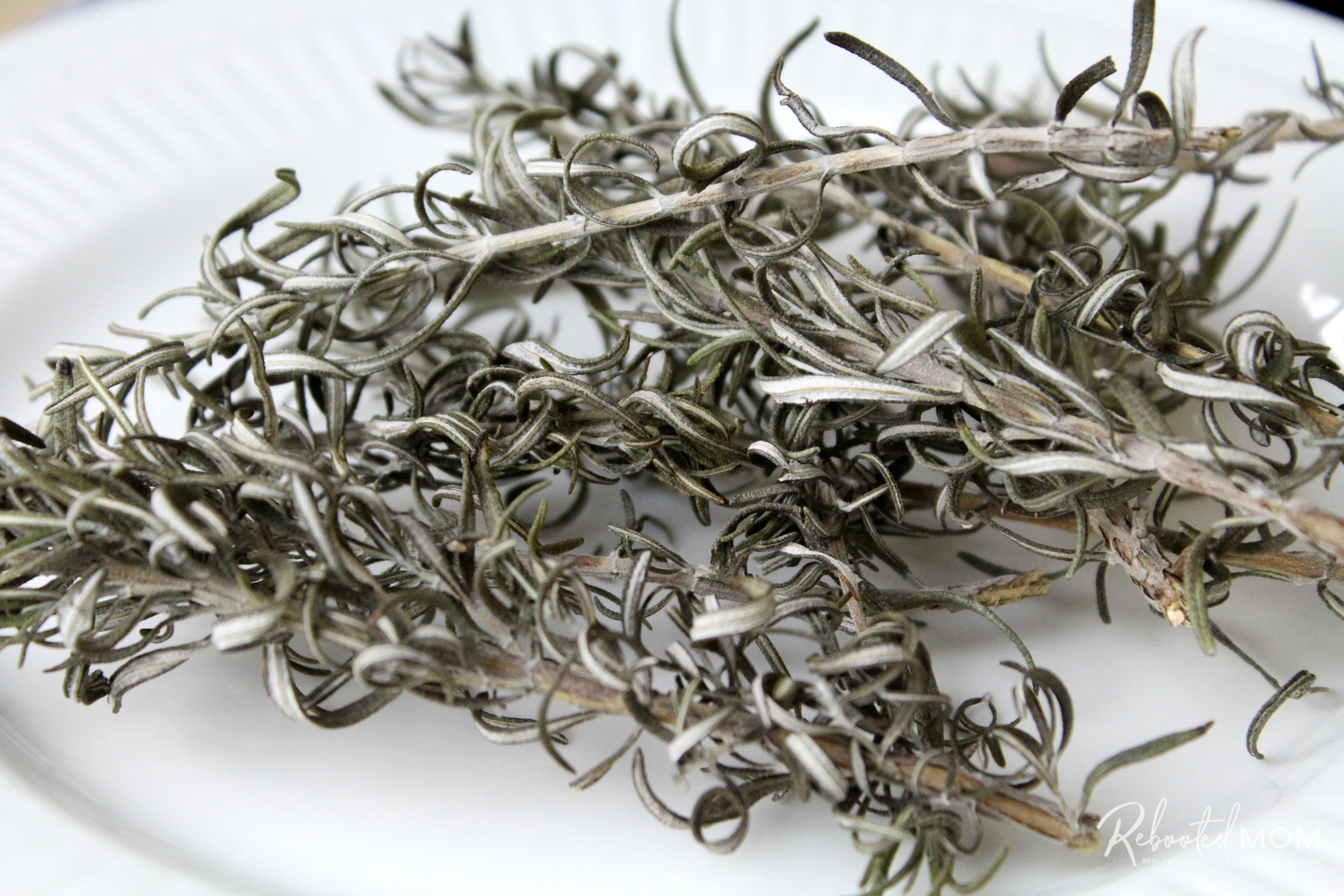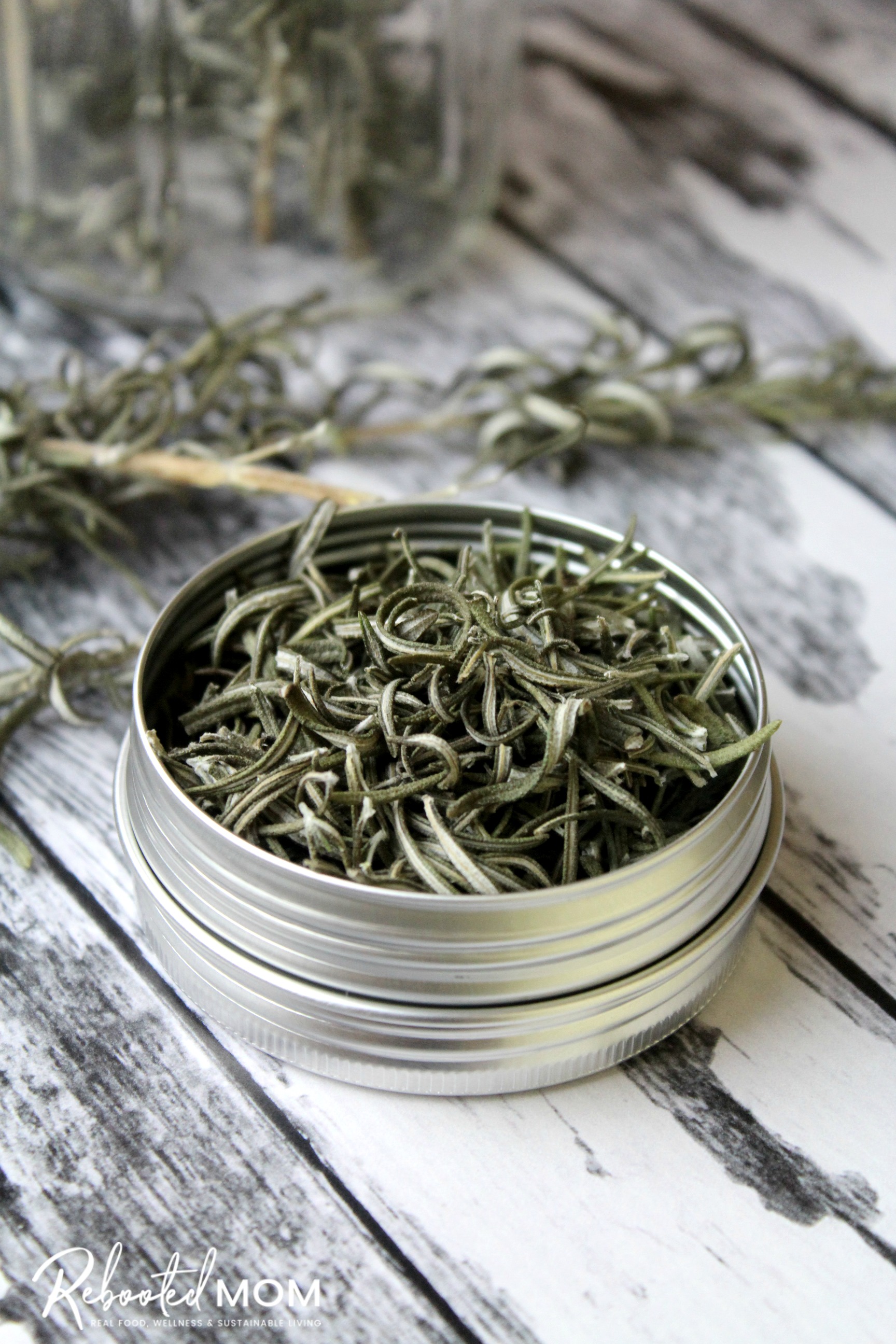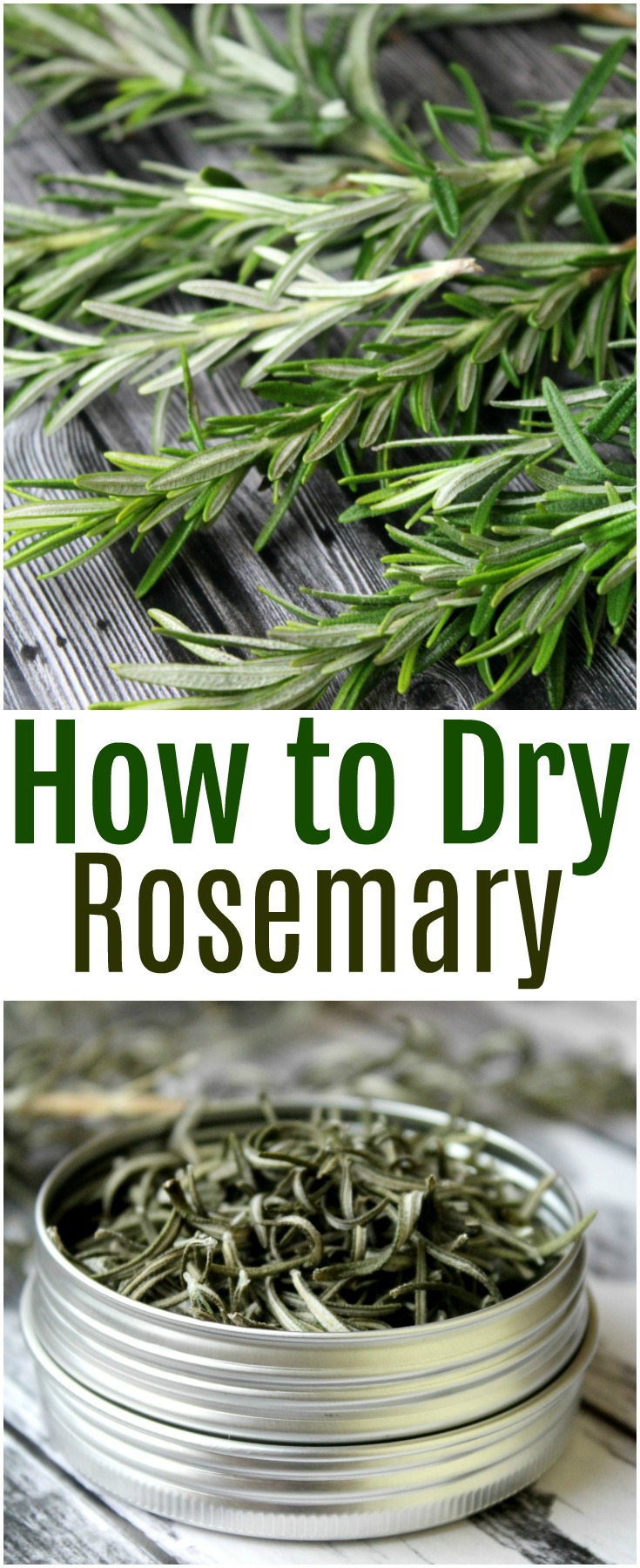Learn how to dry rosemary in three easy methods – baking in the oven, air drying and using a dehydrator. Keep your rosemary fresh for a very long time.

A few years ago, I had a relatively small rosemary bush in the backyard. It was about 4 foot high and grew like crazy despite our long, dry summers here in Phoenix.
Just one year later, I picked up another rosemary bush at the Home Depot and struggled to see that one grow. For several years, it seemed to regress and regress even further. I watered it and gave it wonderful compost tea, lots of sun and despite the attention, it just struggled so much!
It wasn’t until just last fall that it took off. Out of nowhere, it grew like crazy. Now, instead of one huge rosemary bush I have two. Its low-maintenance requirements make it one of my favorite things to grow at home.
(That is.. aside from Lemon Balm! I LOVE growing that!)

I am absolutely infatuated with warm weather herbs. Truth is, while I prefer to use them fresh, sometimes it’s a rarity that I can use them completely in a short period of time.
Proper storage is essential
When stored properly, herbs can keep for quite a long time – rosemary is no exception. Rosemary is also one of those herbs that keeps it’s fragrant flavor even after being dried – which is pretty awesome.
While rosemary powder can be picked up in the store, it’s hard to pinpoint how long those jars have been sitting on shelves. Plus — if you have rosemary in your backyard, why not dry some to keep on hand for recipes or projects?
Dried rosemary can be used to marinate cheese, added into your spice mix, and used in fresh tea, bread rolls, and even flatbread. One of my favorite ways to use it is in rosemary-crusted Asiago cheese. Yum!
Rosemary is also a great source of iron, vitamin B6 and calcium (src). It’s great when used in hair care, skin care or even DIY items with essential oils (like cleaners).

How to Dehydrate Rosemary
Dehydrating (or drying) rosemary doesn’t necessarily need a dehydrator. Though I have found it to be one of my favorite ways to dry the herb.
You can dry rosemary any of these 3 ways:
#1: Hang it
Rinse your fresh rosemary thoroughly and then dry well with a clean kitchen towel or, paper towels. Tie them together at the base of the herb with twine or a sturdy rubber band.
Once you bundle your herbs, hang them upside down either on the back patio or, in your home. I find it helpful to take a brown lunch bag (that’s clean of course) and cover the herbs to prevent pests from bothering them.

I simply cut a hole in the top of the bag and poke the base through before hanging. It works like a charm and allows the herbs the opportunity to dry properly without being bothered. Once the leaves are brittle and begin to fall off, remove them from the stems and store in an airtight container.
#2: Bake it
If you don’t have a dehydrator and aren’t interested in investing in one, you can dry them in your oven in just a few short hours. Rinse and dry your sprigs and snip them into 4″ pieces to make them all as uniform as you can.
Lay them on a parchment lined baking sheet giving them equal space allowance. Put your oven on the lowest temperature possible (200 degrees F for most ovens) and bake for 2 – 4 hours. Once dry, remove the leaves from the stems and store in an airtight container.
#3: Dehydrate
If you own a dehydrator, it’s very easy to dry rosemary. Once you rinse and dry your rosemary, cut the sprigs down and spread out on the dehydrator trays. Give them ample space to allow proper air flow and dehydrate at 125-130 degrees for 3-6 hours or until the needles are completely dry.

Once dry, separate the needles from the tough stems. Store the needles in an airtight container. You can use a clean, dry canning jar to store your rosemary should you have a large amount. Otherwise, small tins work relatively well to keep them dry and cool.
I always have these 2 oz tins on hand for body butter and salve and they work perfect for storing dry herbs.







Can the dried rosemary be stored in glass containers with lids such as small mason jars?
Definitely can!